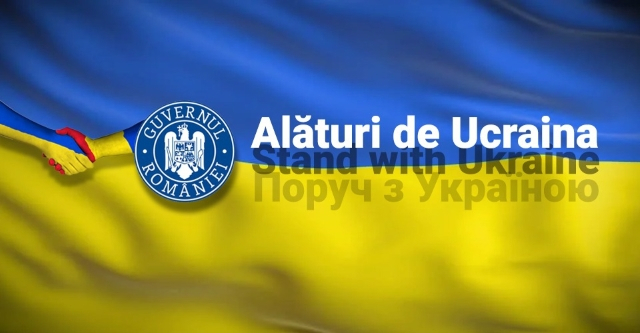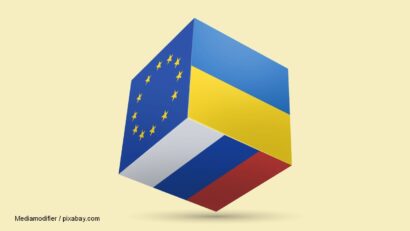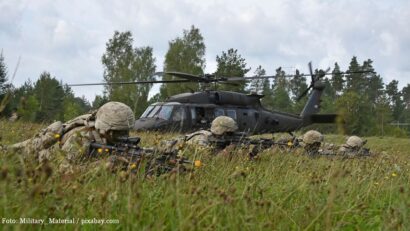One Year of War
After a year of war, Russia has reached none of the objectives that Vladimir Putin set in his 24 February speech

Corina Cristea, 03.03.2023, 02:21
After a year of war, Russia has reached none of the objectives that Vladimir Putin set in his 24 February speech. However, up to this point, none of the sides managed to categorically get the upper hand over the other, and the conclusion of this war depends more and more on the military situation. This was the statement made for Agerpres by political scientist Cristian Parvulescu, one year after the beginning of Russias invasion of neighboring Ukraine. As Parvulescu remarked, There will be room for negotiations only after military operations conclude, and it depends from what positions these negotiations occur. As he explained, there are three possible outcomes: 1 — Russia wins; 2 — Ukraine prevails; 3 — None of the sides manages to get the upper hand. This third situation may lead either to a cease fire in the positions that each side holds at the moment of the decision, or a peace that confirms the existing situation on the front lines. The third solution is, as of now, unacceptable for either side. The number of people who were killed or injured on both sides in the past year runs in the hundreds of thousands, millions of Ukrainians have been forced to flee from the war, and entire cities have been leveled.
In an interview with Radio Romania, George Scutaru, general director of the New Strategy Center, ran an analysis of what he defines as the greatest threat to European security since WWII, and the greatest challenge for NATO:
“What happened over the last year, unfortunately, proves right Romania and other eastern flank states, such as Poland or the Baltic states, which tried to warn their Western allies that Russia is a danger, and that Russia must be stopped from undertakings such as the one in Georgia, in 2008, and the one in which it annexed Crimea in 2014. Unfortunately, most believed that dialog and diplomacy would prevail over the use of force. This was the wrong assessment. And today we are in the situation in which we have large scale war. The good thing is that Ukraine is holding on. On the one side, it relied on the heroism of the entire Ukrainian nation, but there was another side: an ample process of training which was started in 2015 by the US, the UK, and other NATO members for Ukrainian troops. We are talking about a different Ukrainian army than in 2014, and this was seen in the field. At the same time, everyone saw what it means to have an army rotten inside from corruption, badly led, with a badly conceived plan, and badly applied. This resulted in Russian failure, fortunately for us. At the same time, we should not celebrate victory too quickly. We have to be rational, to think that we are talking about a country with major energy resources, a country with a population of 140 million, and, more importantly, with a political leadership willing to fight and see this war through. Putin is not about to give up soon. Russia is prepared economically to continue this conflict for a long time. Basically, we are facing two scenarios: we either have a Ukrainian victory in the second half of the year, when Ukrainians will be able to make good use of all the Western provided armaments, mainly armor, in order to have impact and manage to push through the front line, isolating the land corridor between Donbass and Crimea. The other possibility is a war of attrition, which could carry on for 2 or 3 years, depleting the forces of both countries.”
In February last year, the Kremlin was relying on a quick victory, but the Ukrainian resistance overturned his plans from the very first days of the war. Kiev got help from western states, which, going against the expectations of the Kremlin, acted promptly, delivering weapons and munitions to Ukraine, slapping further sanctions against Russia. In this conflict, more or less openly, nuclear threats were made, with statements from the leader in the Kremlin causing worries among decision makers and the population. This was the topic talked about with Radio Romania by NATO deputy secretary, Mircea Geoana:
“Based on what we can see, the Russian Federation has neither the capacity, nor the intent to escalate the war in Ukraine to a war with NATO. It would be somewhat illogical, because given the asymmetry between the Russian Federation, weakened by the conflict, with military capacity way below what it believed, in comparison with NATO, which is much stronger, more modern, and more potent, it makes no sense. What the Russian Federation is doing is it is trying to use its hybrid war arsenal against the West as well. One central weapon in this disinformation war is intimidation, making noises of nuclear rhetoric aimed at public opinion. The Kremlin is basically trying to intimidate Western public opinion. When you hear such rhetoric from the top tier in the Kremlin, a feeling of worry is natural, and absolutely legitimate. What I want to say in order to alleviate these worries is that, militarily, we dont see signs or clues on that, because this would be an unprecedented escalation by the Russians, and, as a nuclear power, they know exactly what that means.”
At the same time, Mircea Geoana added, what we can expect is for nuclear rhetoric from Russia to continue, in order to intimidate and sap our unity and willingness to support Ukraine.






























